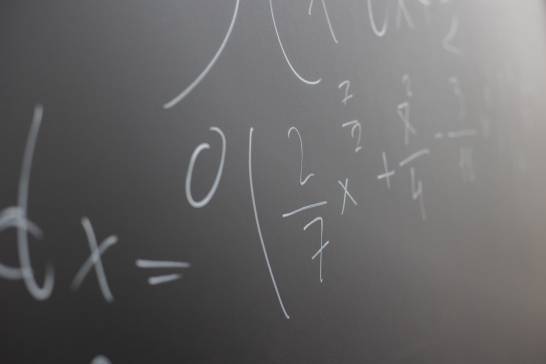Despite the fact that in recent years there has been an increase in the proportion of women among university professors in the field of mathematics, a study signed by the members of the Superior Council for Scientific Research (CSIC), and published in the Gazeta de la Real Sociedad Española de Mathematics (RSME), points to a change in trend.
The work, which is based on a questionnaire applied to 1,587 undergraduate students in mathematics from 12 Spanish universities in September 2021, indicates that for 26.2% of respondents it is “unlikely” that they will choose the research option in the future. , while for men the proportion is 18.6%.
In the study, three main variables related to disinterest in research were identified. On the one hand, the years spent on the series. This phenomenon affects both women and men, although the differences between both sexes are significant. The estimated probability of student disaffection grows from 5.6% among men and 8.1% among women in the first year, to 27.5% among men and 35.9% among women in the first year.
The estimated probability of student disaffection grows from 8.1% in the first year to 35.9% in the fourth year among women
“Students’ expectations of what mathematics and research are can change over the course of their studies. In addition, in recent years, the perception of professional opportunities associated with degrees in mathematics has changed, which can lead to a greater preference for professional careers in the company, something that can increase over time”, he reflects. Javier Aramayona, researcher from the Institute of Mathematical Sciences (ICMAT-CSIC-UAM-UC3M-UCM) and co-author of the work.
Satisfaction with studies is another of the variables raised by the report. “As satisfaction with completed studies increases, which express positive career experiences, students decrease dissatisfaction with research as a future option”, explains Laura Cruz, researcher at the Institute of Policies and Public Goods (IPP-CSIC) and also author of the study.
As previous studies corroborate, women tend to rate their math skills more negatively than men.
The third variable consists of self-assessment in relation to peers. The disaffection with the research is reduced when this self-assessment is positive, that is, when the student places himself in the average or above his peers. This occurs more among men than among women.
Furthermore, as previous studies corroborate, women tend to rate their math skills more negatively than men. “It would be interesting to follow this difference in the grades of undergraduate mathematics students, both at the time of access and in their evolution throughout the courses, and to study its relationship with disaffection for research”, says Luis Sanz, author of Trabalho e Investigação no IPP-CSIC.
Diagnosis and understanding
“The data obtained, together with the increase in the percentage of men with a degree in Mathematics observed in recent years, suggest that in the future there will be an increase in the masculinization of the research career in Mathematics”, says Ágata Timón, from ICMAT and co-author of the report.
According to data from the Ministry of Universities, only 35.6% of people who complete a doctorate in mathematics are women, with this number being smaller in more theoretical areas. “The trend in recent years has worsened and there has been a decrease in this proportion compared to the 42% it represented in the 1997-98 school year”, says Laura Cruz.
“The study represents a first step towards better understanding the processes and mechanisms that cause the shortage of women in mathematics research,” says Sanz. “A good diagnosis and knowledge of the current and past causes of situations are an essential pillar in the design and implementation of appropriate measures to solve problems”, concludes Cruz.
Reference:
Javier Aramayona et. for the. “Dissatisfaction with a research career in mathematics: differences between men and women”. The RSME Gazette. 2023
